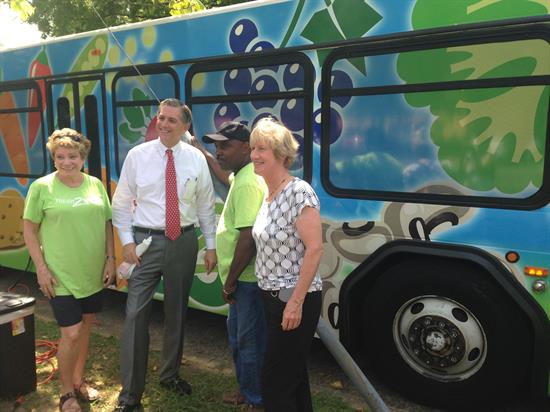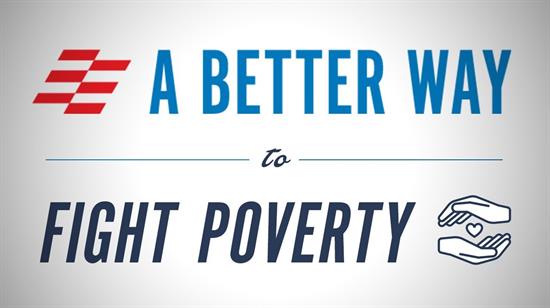Dear Friends,
I appreciate the feedback I have received about the Community Empowerment Initiative (CEI) and the desire many of you have expressed in participating in the work we are doing. If you have any ideas about CEI or ways Congress can better address lifting families out of poverty, please leave me a message on my Facebook page.
I started the CEI with the goal of highlighting people and programs who are making a difference in curbing the cycle of poverty in our community and encouraging more of our private citizens to get involved. One way to have a positive influence on transforming our community is by being involved with local faith-based organizations.
Our local faith-based groups play an integral role in our own lives, and the role they play in our communities is just as critical. Churches, synagogues, and mosques all work to aid the impoverished by providing, among other things, clothing, food, shelter, health care, and job assistance. Additionally, faith-based organizations frequently send mission groups to disaster areas or highly impoverished areas to assist in the development and rebuilding of those communities. And beyond just their direct contributions to their communities, faith-based leaders are frequently at the forefront of advocating for policies to assist the poor and breaking the cycle of poverty.
The power of faith-based organizations to effect change and help curb poverty is perhaps nowhere more evident than through the work done here in our district by Mosaic Church and their non-profit entity Vine and Village. Located in Little Rock’s burgeoning University District, Mosaic seeks to transform the community in which it operates to help end poverty in the area.

Rep. Hill with Vine and Villages’ Fresh2You Mobile Market team members and Patty Barker. |
Their mission is to accomplish this through three principal avenues: spiritual transformation, economic transformation, and social transformation. Spiritual transformation involves a changing of the heart of those in the community through spiritual healing. Only through such a transformation can debilitating issues such as racism be solved.
Economic transformation dictates that for a community to be successful it must have thriving business, reputable schools, and economic opportunity. Mosaic has played a critical role in this kind of economic transformation by helping to revitalize parts of the University District. After moving into the former Walmart on Colonel Glenn Avenue, the formerly abandoned strip mall is now thriving and soon will be a community center. Last year, they moved into the former K-Mart across the street and are already drawing new businesses and revenue into the area. Finally, poverty can’t be truly eliminated unless a community experiences social transformation. Through coordinated efforts aimed at causing such a transformation, the community itself is changed. As Arthur Brooks, president of AEI, said in his book The Conservative Heart, linking the moral and the economic is how we can break the cycle and obtain lasting change.
Last year, House Speaker Paul Ryan announced in A Better Way the House’s vision and main ideas for fighting poverty in the United States. These included points such as: trying to fight the factors that contribute to one’s ability to work (such as housing, adequate nutrition, transportation, etc.), “getting incentives right so everyone benefits when someone moves from welfare to work,” and trying to measure the impacts of poverty relief programs and then basing funding on said results. Faith-based organizations are well-positioned to help in all of these areas.
Local faith-groups are often at the forefront when it comes to proposing new and innovative solutions to help the impoverished members of a community overcome work-prohibiting living conditions. While the incentives Mr. Ryan details may not always overlap with those of faith-based organization, most would view the idea as commendable, even if faith groups’ missional goals are often more about the specific services they provide. And while there are questions as far as funding is concerned, faith-groups are confident that they provide the kind of results to maintain healthy funding and partnerships with the government.
Click the image below to learn more about House Republican's plan for fighting poverty
The role that faith-based organizations have to play in defeating poverty is crucial. The amount of aid and assistance that comes through such groups is overwhelming, and without their tireless efforts the task would be far more daunting. By actively encouraging the work of such groups, and their coordination with government efforts, poverty can be defeated through the transformation of our communities. While all of this begins on a local level, with enough involvement and enthusiasm, it can be a national movement with profound results.
Sincerely,

Representative French Hill |



